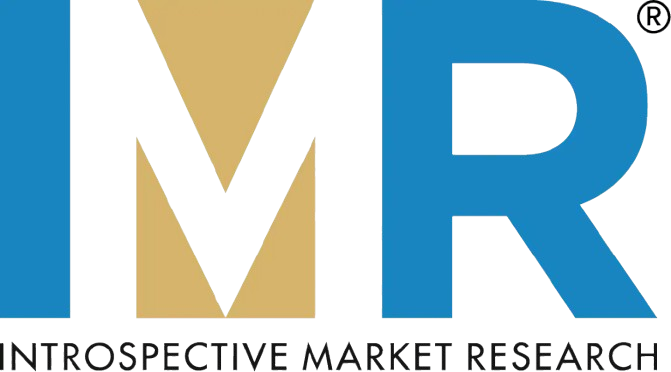Global Bleaching Agent Market Set to Reach USD 1.48 Billion by 2032 Driven by Surge in Pulp & Paper, Textile and Water Treatment Demand

(IMR) projects that the global bleaching agent market valued at USD 0.92 billion in 2023 will grow to USD 1.48 billion by 2032, at a compound annual growth rate (CAGR) of 5.40% over the forecast period.
This growth is being driven by robust demand across multiple industries notably pulp & paper, textiles, and increasing requirements in healthcare, sanitation, and water treatment. The shift toward greener bleaching technologies and rising regulatory pressure on environmental safety are also shaping the market trajectory.
Complete guide pdf:
https://introspectivemarketresearch.com/reports/bleaching-agent-market/
Quick Insights
- 2023 Market Size: USD 0.92 Billion
- 2032 Forecast Market Size: USD 1.48 Billion
- Forecast CAGR (2024–2032): 5.40%
- Top Region (2023 onward): North America
- Fastest-growing segments (by product): While chlorine-based bleach continues to lead, oxygen- and peroxide-based bleaches, along with emerging enzyme-based (“green”) bleaches, are gaining traction.
- Key Players: Aditya Birla Chemicals (India), Akzo Nobel N.V. (Netherlands), BASF SE (Germany), Clariant AG (Switzerland), Dow Inc. (USA), DuPont (USA), Evonik Industries AG (Germany), among others.
Market Dynamics & Segmentation
Product Type Trends
The market is segmented into: Chlorine Bleach, Oxygen Bleach, Peroxide Bleach, and Other Types (including enzyme-based bleaches).
- Chlorine bleach remains dominant across industrial uses such as paper-bleaching and water treatment, owing to its cost-effectiveness and strong bleaching potency.
- However, rising environmental concerns and regulatory pressures are driving adoption of oxygen- and peroxide-based bleaches (e.g., hydrogen peroxide), which degrade into water and oxygen making them more eco-friendly.
- Enzyme-based bleaching is emerging as a promising “green” alternative, particularly in detergent, textile, and hygiene applications.
Application & End-User Breakdown
Applications include Pulp & Paper, Textiles, Household Cleaning, Water Treatment, Healthcare & Sanitation, and other applications (such as food processing, laundry).
- Textiles segment is expected to hold the largest share, driven by demand for fabric whitening before dyeing or finishing.
- Pulp & Paper continues to be a key driver, thanks to rising global paper consumption and increasing use of recycled paper (which requires bleaching).
- Growth in water treatment, healthcare and sanitation (especially post-pandemic) is opening new avenues for bleaching agent deployment.
End-users span Industrial, Residential, and Commercial categories.
Regional Analysis
- North America is projected to remain the market leader through 2032, driven by an advanced industrial base (pulp & paper, textile, water treatment) and stringent regulatory norms favoring environmentally safer bleaching agents.
- Asia Pacific, given its growing industrial manufacturing especially textiles and paper and expanding demand for water treatment and sanitation, represents a high-growth opportunity. While the IMR report emphasizes North America’s lead, parallel studies (e.g., IMARC Group) also highlight Asia Pacific’s rising influence in the broader bleaching agents market.
What’s Driving the Growth and What’s Challenging It?
Opportunities & Emerging Trends
- Is “green bleaching” the future of the bleaching agent market?
There’s a clear shift toward eco-friendly, biodegradable bleaching agents such as oxygen-, peroxide-, and enzyme-based formulations. Advances in green chemistry and rising environmental regulation are prompting manufacturers to innovate. - Will healthcare and water treatment fuel long-term growth?
Growing awareness around sterilization, sanitation, and safe drinking water especially post-COVID is expanding demand beyond traditional textile and paper industries. The push for improved water infrastructure worldwide is likely to open new market frontiers.
Challenges & Headwinds
- Environmental and regulatory pressure: Conventional chlorine-based bleaching agents face scrutiny over chemical discharge, toxicity, and environmental impact which could curb demand or force reformulation.
- Cost pressures: Producing greener or enzyme-based bleaches may require higher manufacturing costs, which could challenge profitability or slow widespread adoption, especially in cost-sensitive regions.
Expert View
“The bleaching agent industry is entering a transformative phase,” says Dr. Neha Verma, Principal Consultant at .“While traditional chlorine bleaches will continue to serve core industrial needs, the real growth and long-term sustainability lies with oxygen-, peroxide-, and enzyme-based formulations. Companies investing in green chemistry and flexible supply chains are best positioned to capture emerging demand, particularly in water treatment and healthcare.”
Noteworthy Developments & Company Moves
Several major players including Akzo Nobel N.V., BASF SE, Clariant AG, Aditya Birla Chemicals, Dow Inc., and Evonik Industries AG are actively expanding their portfolios, exploring environmentally friendly bleaching agents, and investing in sustainable R&D.
This strategic pivot reflects broader industry momentum toward biodegradable, low-toxicity bleaching solutions, aligned both with regulatory expectations and consumer demand for safer, eco-conscious products.
(Mini) Case Study Green Shift in Textile Sub-Segment
One leading European textile-bleaching facility recently replaced chlorine-based bleach with an oxygen-peroxide–enzyme hybrid system, achieving comparable fabric whiteness while reducing wastewater toxicity and lowering chemical disposal costs by 25%. This illustrates how green bleaching innovations are not only environmentally responsible but also economically advantageous.
Why This Report Matters
For stakeholders in pulp & paper, textiles, water treatment, hygiene, and industrial cleaning this comprehensive report from IMR offers:
- Deep segmentation by product type, application, end-user, and region
- Forecasted market size and growth potential (2024–2032)
- Insight into emerging green-bleach technologies and regulatory trajectories
- Detailed competitive landscape with profiles of leading players and their strategic initiative
About
is a leading global provider of in-depth industrial market insights, covering sectors from chemicals and materials to healthcare, energy, and consumer goods. Our syndicated reports and custom consulting services enable businesses to make data-driven strategic decisions.
Contact:
South King Drive, Chicago, IL
Phone: +91-74101-03736 | +91-81800-96367
Email: sales@introspectivemarketresearch.com
To request a sample report:
https://introspectivemarketresearch.com/request/19802
- Art
- Causes
- Crafts
- Dance
- Drinks
- Film
- Fitness
- Food
- Spellen
- Gardening
- Health
- Home
- Literature
- Music
- Networking
- Other
- Party
- Religion
- Shopping
- Sports
- Theater
- Wellness

